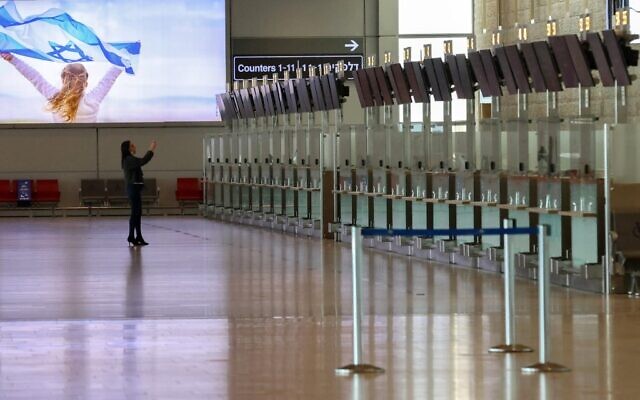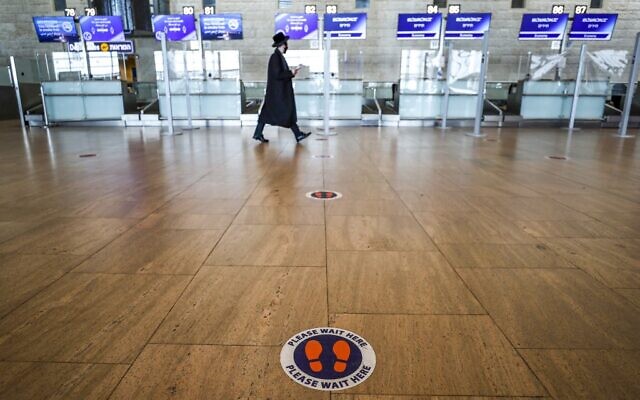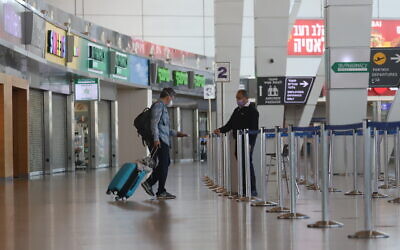The order, in effect until January 31, marks the first time since the start of the pandemic the Jewish state is barring entry to its own citizens and new immigrants

Israel on Monday night shuttered Ben Gurion Airport to nearly all flights until the end of January, amid fears over fast-spreading or vaccine-resistant coronavirus variants entering the country.
The airport closure began midnight and will remain in effect until Sunday, January 31, when national lockdown measures are set to be eased, unless the government moves to extend the rules further.
It was the first time since the start of the pandemic that Israel prevented its own citizens from entering the country.
Even new immigrants, who have continued to arrive during the pandemic despite limits on non-citizen entry, will have to wait until the shutdown ends to travel to the country.

Under the government order, all commercial aircraft are barred from entering Israeli skies or landing at Ben Gurion Airport. Exceptions will be made for cargo planes, emergency aircraft, and planes that traverse Israeli airspace without landing.
Departing flights will also be canceled and only those those traveling for medical treatment, essential work, legal proceedings, a funeral of a relative, and movement from one residence to another will be allowed to leave, and even then only on private planes.
The director of the Health Ministry can grant exceptions for humanitarian or “special personal” reasons.
International travelers have been identified as a prime source of infections in the country.

Prime Minister Benjamin Netanyahu said the measure would “hermetically” seal the skies.
“We are closing the country hermetically. Just in this week of closing the skies, we will vaccinate another million Israelis,” he said at the start of the weekly cabinet meeting on Sunday.
Netanyahu claimed “no country” has taken such a step, following months in which the government’s entry policy had been criticized as too lax and been blamed for many COVID-19 cases being imported.
Sharon Alroy-Preis, head of public health at the Health Ministry, told the Knesset on Monday that the planned weeklong closure of Ben Gurion Airport would not be long enough.
“The six days that we have decided to close Ben Gurion Airport will not be enough. We will have to extend the closure by at least a few weeks to buy time for the vaccination campaign,” Alroy-Preis said.

A British variant of the virus is circulating widely in Israel, accounting for nearly half of recent cases, according to health officials. Twenty-seven cases of a South African strain have been found in the country, in addition to four cases of a California mutation. Officials fear the variants might prove resistant to the vaccines.
Widely believed to be far more infectious, the British government has also said there are preliminary indications the strain may cause 30 percent higher mortality.
The airport closure also comes as Israel’s daily virus caseload remains high, despite a frantic vaccination drive that has seen over 2.6 million Israelis receive the first shot, and 1.1 million get both doses — far outpacing the rest of the world. The government has set a goal of vaccinating the entire adult eligible population over the age of 16 by the end of March.
To curb the spiraling infections in the interim, a tight lockdown — the country’s third — has been in place since earlier this month. Under the current lockdown orders, all nonessential businesses are closed, as well as the entire education system, with the exception of special education institutions. Health officials are expected to request another week extension of the lockdown, according to reports on Monday night.
Israel has seen over 600,000 virus cases since the start of the pandemic in March and 4,478 deaths, including over 1,000 fatalities in January.
As reported by The Times of Israel
